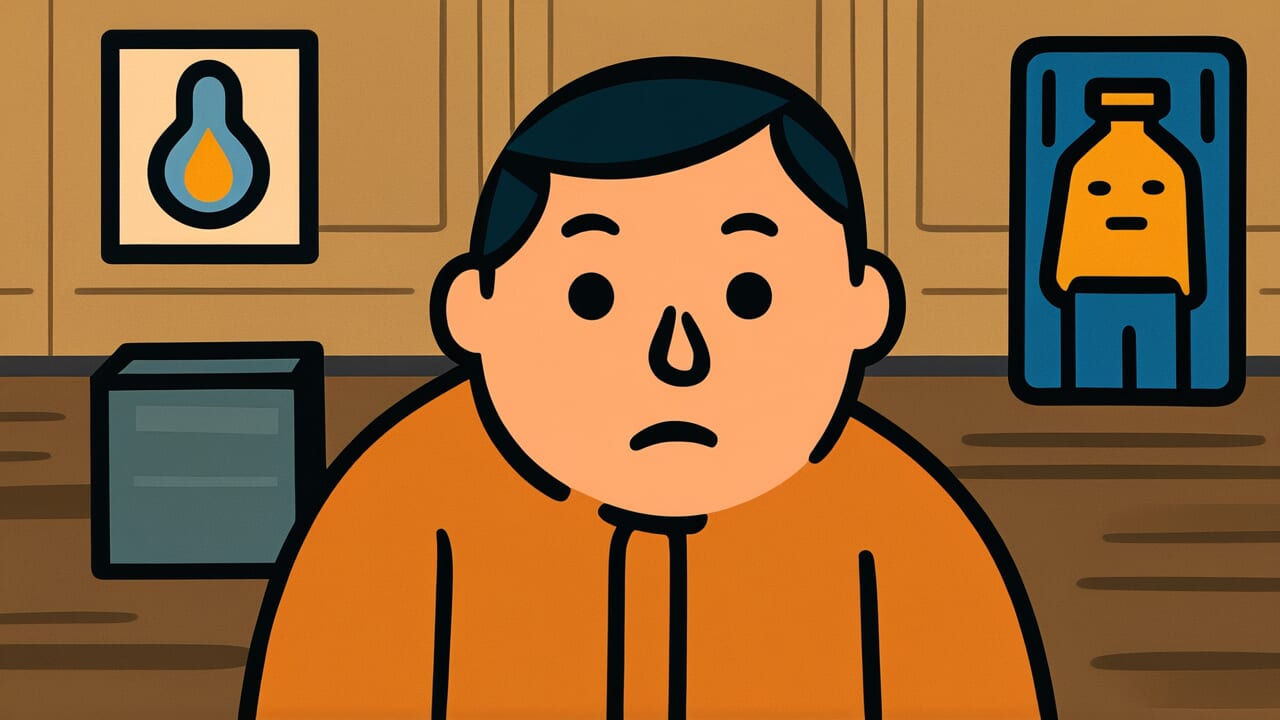How to Read “When sad, you are alone with just your body”
Kanashii toki wa mi hitotsu
Meaning of “When sad, you are alone with just your body”
“When sad, you are alone with just your body” teaches us that when deep sadness strikes, we must face it alone.
No matter how many people surround us, no matter how much material comfort we have, we ultimately confront our grief by ourselves.
When we lose someone important or experience major failure, comforting words don’t always reach our hearts. Helping hands can’t always ease our pain.
In extreme sadness, no one can grieve for us. Our own mind and body become our only refuge.
This proverb expresses the loneliness of grief. But it also carries a powerful message about trusting our inner strength.
Even today, people who experience deep loss or despair understand this truth. In the end, we must find the strength to stand up on our own.
Origin and Etymology
No clear written records explain the origin of “When sad, you are alone with just your body.” However, we can learn much from examining the phrase itself.
The expression “mi hitotsu” (just your body) has been used in Japanese for centuries. It means “only your body” or “having nothing with you.”
People used this phrase when fleeing with only the clothes on their backs. They also used it when describing the loss of all possessions.
This proverb uniquely connects an emotional state with a physical one. It links “when sad” with “just your body.”
When deep sadness overwhelms people, they sometimes cannot accept help or comfort. Their hearts close off from external support.
Our ancestors captured this psychological truth with the concrete phrase “just your body.”
Buddhist philosophy may have influenced this saying. Buddhism teaches that all life involves suffering and that everything is impermanent.
Throughout Japanese history, people lost everything to war and natural disasters. These experiences likely shaped such expressions.
The proverb reflects a harsh but honest view of life. In extreme sadness, we can only face ourselves. This truth remains at the heart of the saying.
Usage Examples
- When my best friend died, I realized that when sad, you are alone with just your body, no matter how much people tried to comfort me
- After making a huge mistake and feeling down, I understood that when sad, you are alone with just your body and must overcome it yourself
Universal Wisdom
“When sad, you are alone with just your body” offers deep insight into the nature of human sadness.
We normally live connected to family, friends, and society. But when we face truly deep sadness, we must confront fundamental loneliness.
Even with loved ones beside us, even with warm words spoken to us, the sadness itself lives in our own hearts. No one can carry it for us.
This truth transcends time and culture. Ancient people and modern people experience the same essential loneliness in grief.
This is why the proverb has been passed down through generations.
However, this saying doesn’t preach despair. Rather, it expresses trust in human inner strength.
When we are alone with just our body, we face our own deep power. Even when external support cannot reach us, we have the strength to stand up.
Acknowledging the loneliness of carrying sadness alone also means acknowledging something else. The power to overcome that sadness also lives within us.
This harsh yet hopeful understanding of humanity represents the universal wisdom of this proverb.
When AI Hears This
The process of losing possessions during sadness remarkably resembles entropy increase in thermodynamics. Entropy measures disorder, and all matter in the universe naturally scatters and loses order when left alone.
For example, ice melts into water, then eventually disperses as water vapor. This one-way change never reverses itself.
Life’s tragedies follow the same structure. During crises like disasters, illness, or economic collapse, we first lose unnecessary things.
Hobby items go first, then luxury goods, then necessities. Possessions decrease like a ball rolling from high energy to low energy states. This follows natural physical laws of decay.
Here’s what matters: the state of maximum entropy, the “just your body” state, is actually the most stable ground state.
In physics, the ground state has the best energy efficiency and the greatest potential for change. Water that has completely melted from ice can freeze again or boil. It has freedom.
Humans work the same way. The “just your body” state after losing everything is actually the lightest and most adaptable state.
Without the weight of possessions, we can adapt to any environmental change. Loss through sadness may be a “reset” forced by physical laws. It might be preparation for gaining new energy.
Lessons for Today
This proverb teaches us how to face sadness in our modern lives.
Today’s society keeps us constantly connected through social media. We can quickly get sympathy and encouragement from others.
But when we face truly deep sadness, these surface connections cannot fill our hearts. This proverb teaches us to trust our inner strength at such times.
Carrying sadness alone is not weakness. It’s the strength to honestly face your own emotions.
Because we cannot rely on others, we discover our resilience deep within our hearts.
When you’re in deep sadness, you don’t need to force yourself to seem cheerful. Give yourself permission to face sadness alone with just your body.
In that lonely time, you will surely find your own strength. That experience will make you a deeper, kinder person.
Sadness is not an ending. It’s the beginning of meeting a new version of yourself.



Comments